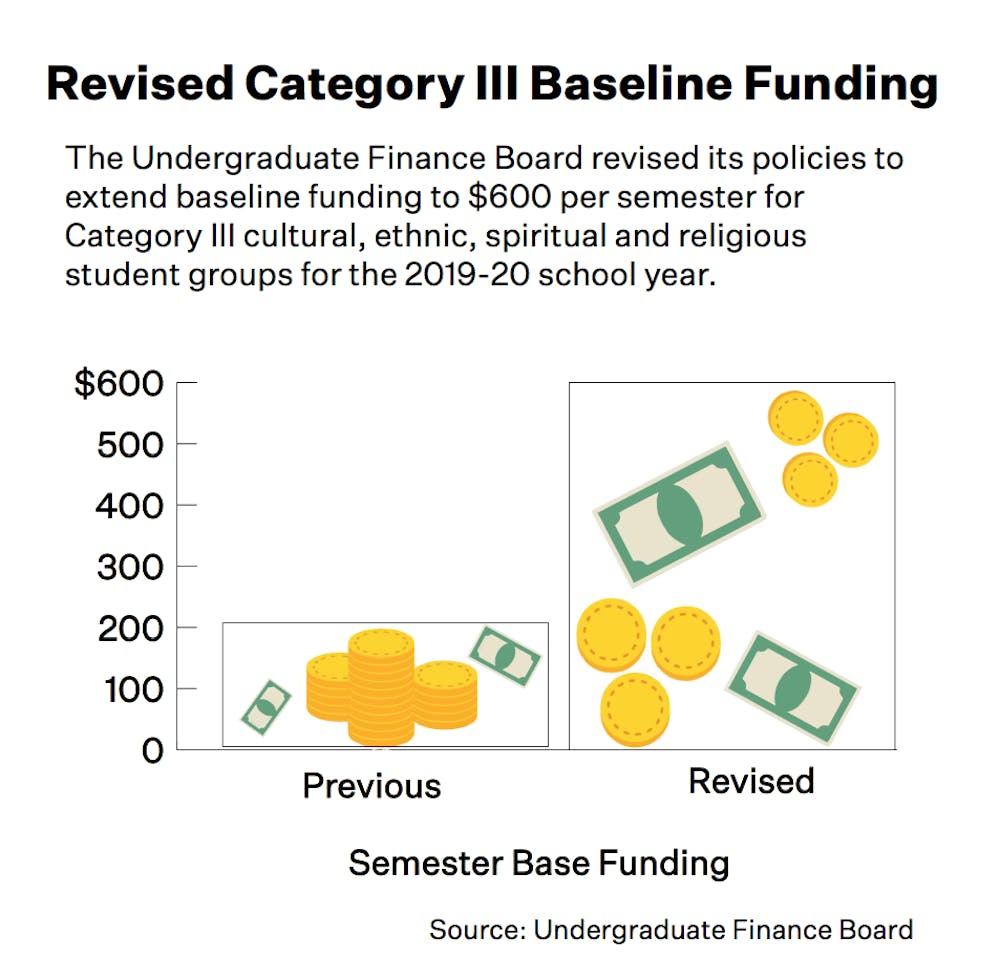The Undergraduate Finance Board extended baseline funding to $600 a semester for Category III cultural and religious student groups last month in an effort to lessen the financial burden of purchasing food for group events. These student groups typically receive $200 a semester from the Board and are eligible to apply for additional funding. The 33 cultural and religious student groups will receive the extended baseline funding in the spring and have already been given an additional $400 this semester.
This policy change came in light of an Oct. 13 focus group discussion UFB held with representatives from cultural and religious students groups. The representatives informed the Board that they experienced difficulties covering food costs, and they collaboratively suggested the increase in baseline funding as a policy solution, said UFB Vice Chair Fatoumata Kabba ’22.
“One of the major” consensuses of the focus group discussion was “how important food was in cultivating the kind of cultural communities that we had aspired for in our groups,” said Black Christian Ministries Co-President Jared Jones ’22. Jones said it had been a “battle trying to explain to (UFB)” why food was necessary for their events.
Prior to the policy change, challenges in requesting and obtaining funding for food from UFB also led some groups to seek outside funding, which “suggests that UFB has inadequately been supporting” them, according to a statement from UFB.
In requesting funding from the Board, cultural and religious groups felt that they had to “defend their culture to people who don’t have the right to make value judgments on their culture … and how integral food is,” Kabba said.
By extending the baseline, “UFB removes itself from having to make determinations about the cultural or religious significance” of budget requests, said Junaid Malik ’20, executive board member of the Pakistani Students Association at Brown.
Cultural and religious groups are set apart from other student groups because they focus on “cultivating specific communities,” Jones said.
BCM, for instance, holds a weekly kickback event, during which students come together in fellowship. Much of its budget every semester is allocated to food for these events, but the group faced difficulties obtaining funding from the Board earlier this semester, Jones said. As a result, the group had to dip into their limited raised funds, spend money out-of-pocket and extend their fundraising efforts.
According to the Board statement, the increase in baseline funding will “hopefully re-engage” groups who stopped requesting money from UFB because they were discouraged by previous funding decisions, and ensure that “less time is spent on fundraising and more time is used to help spread awareness and appreciation for the various cultures and religions on campus.”
UFB will likely evaluate the policy, which is being piloted for the 2019-2020 school year, and ask student groups for feedback at the end of the spring semester, Kabba said.
“There should be work continuing to happen for cultural and religious groups” because extending baseline funding “doesn’t solve all of their problems,” she added. UFB is considering, for instance, making the focus group discussion with cultural and religious groups an annual or semesterly event.
The Board has also introduced two internal committees focused on outreach and transparency to continue conversations about student group funding, Kabba said. “It’s important for us that groups … feel welcome when they come into UFB and they feel respected.”





